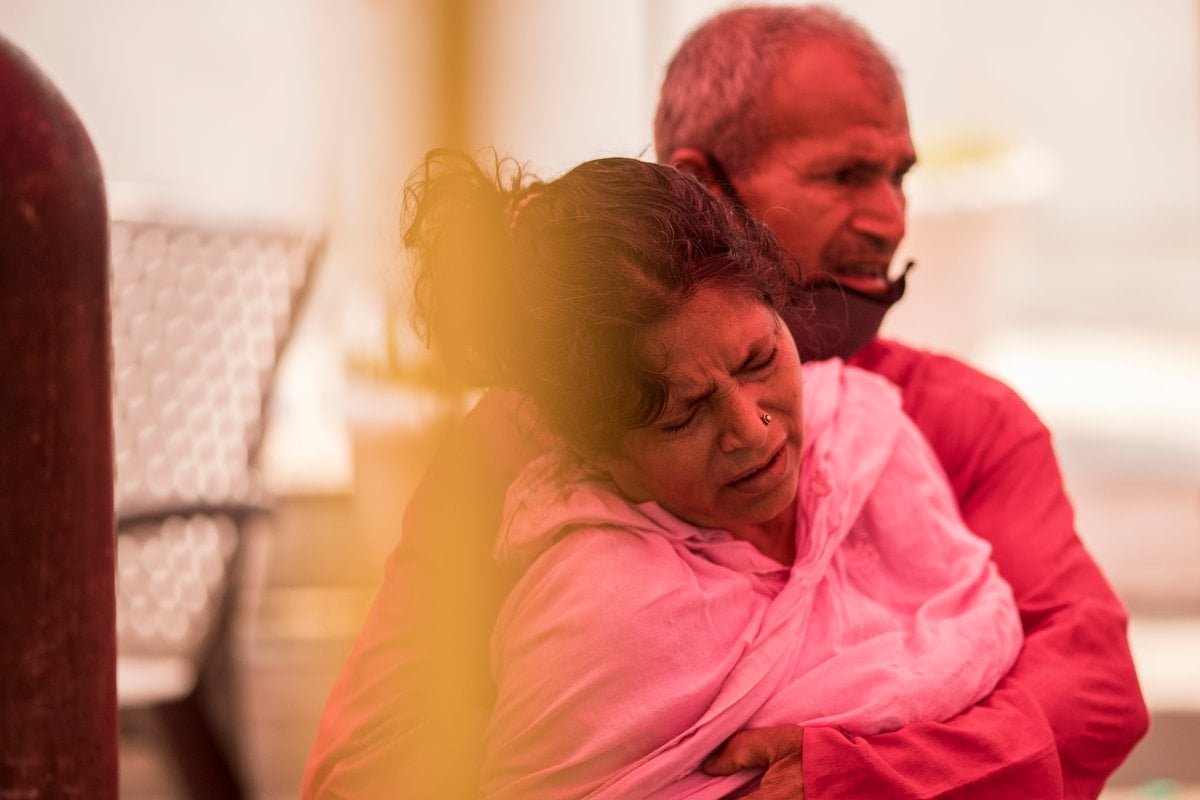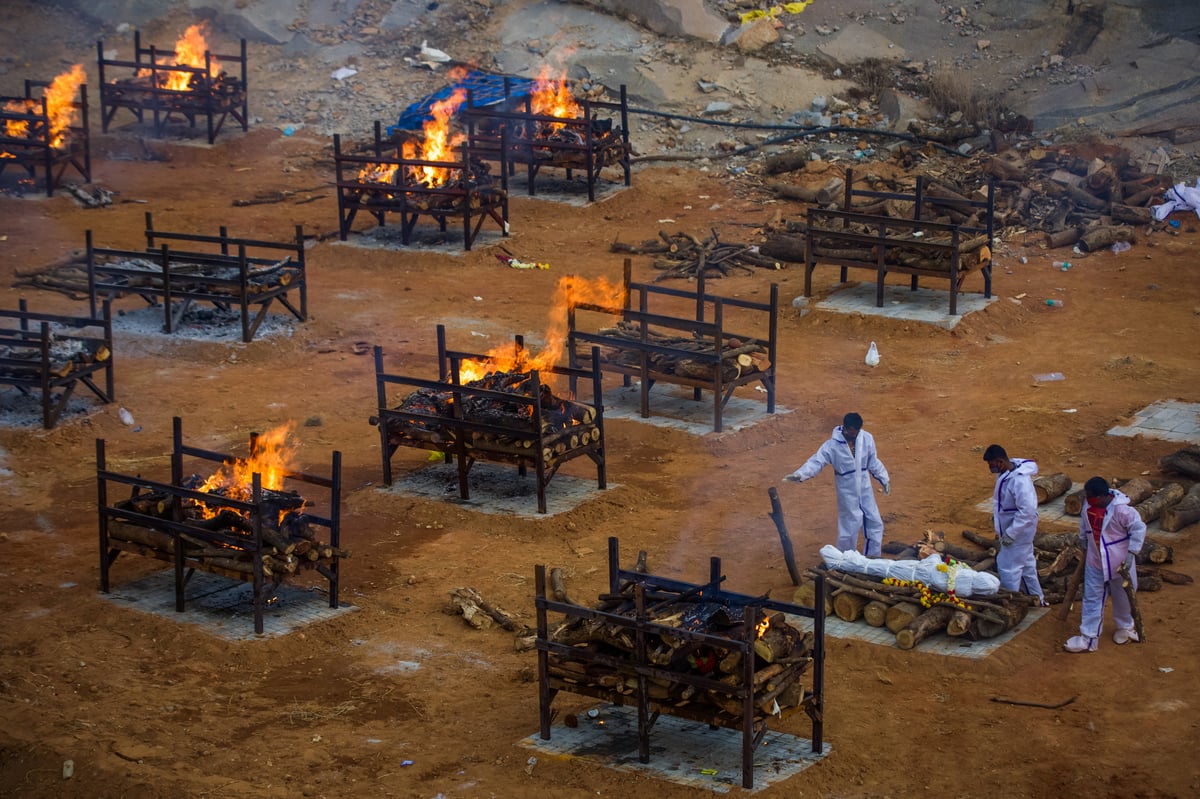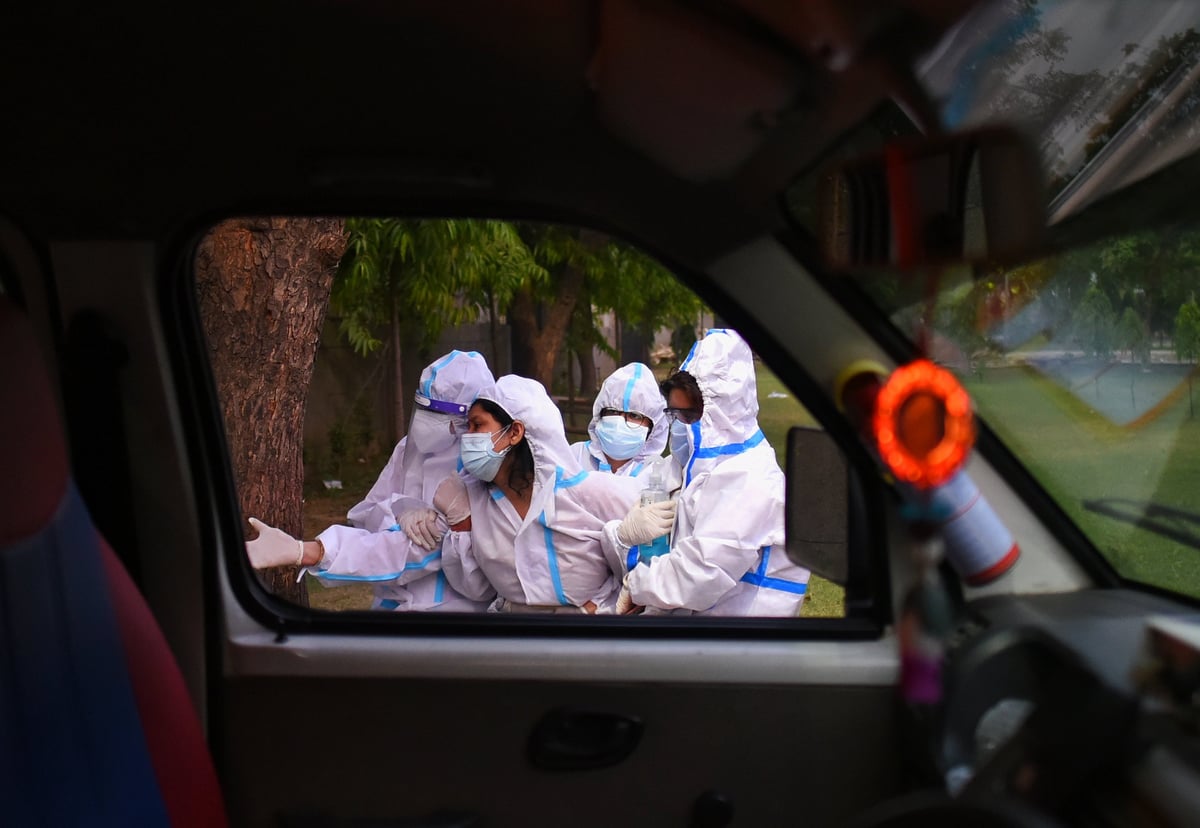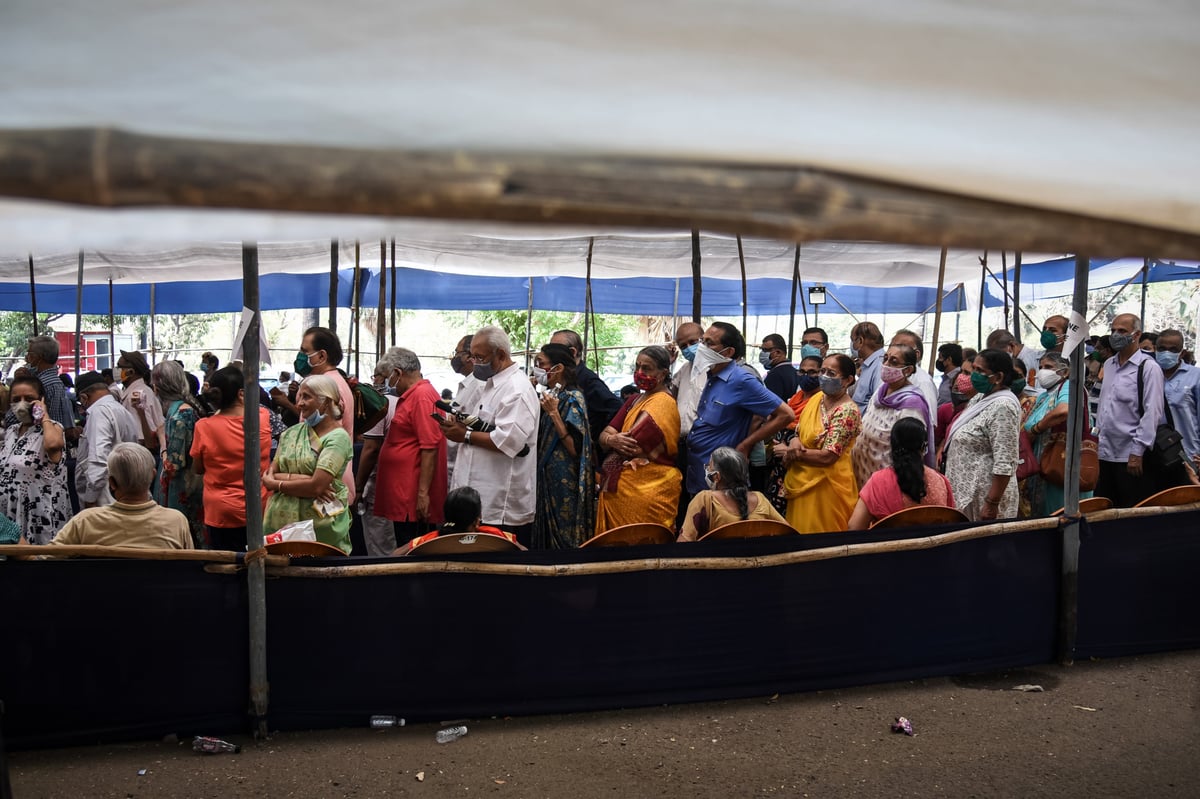
India remains in the midst of the world's worst coronavirus wave, experiencing its deadliest day yet on Sunday. Still, even with the official numbers so catastrophically high, experts predict the death and case numbers are considerably higher than data suggests.
With patients left gasping for air amid a great oxygen shortage, more than 40 countries have promised to send emergency medical supplies.
In the meantime, in Australia, the Morrison Government is facing backlash for introducing massive fines and up to five years behind bars for travellers who come to Australia from India during a temporary pause, with many saying the law is racist.
 Mass cremations are being held as India recorded their deadliest day yet since the COVID-19 pandemic. Image: Getty.
Mass cremations are being held as India recorded their deadliest day yet since the COVID-19 pandemic. Image: Getty.



Top Comments